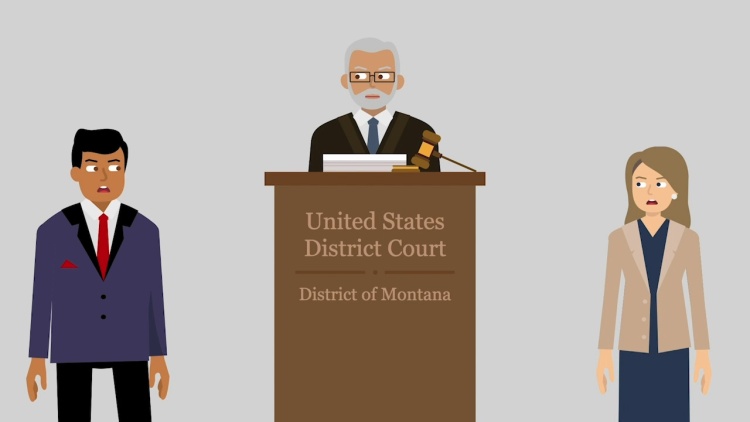Montana v. United States
United States Supreme Court
440 U.S. 147 (1979)
- Written by Alexis Tsotakos, JD
Facts
The government (defendant) brought suit in federal court against Montana (plaintiff), challenging the constitutionality of Montana’s practice of imposing a 1 percent gross receipts tax on contractors of public construction projects, but not on private contractors. The case was continued pending the outcome of another case, Peter Kiewit Sons’ Co. v. State Board of Equalization (1973) (Kiewit I), which addressed the identical issue in state court. In that case, a federal contractor, Kiewit, challenged the tax on constitutional grounds, alleging that it impermissibly discriminated against the United States and the construction companies with which it contracted. The Montana Supreme Court held in favor of the tax, and Kiewit filed a notice of appeal with the United States Supreme Court. At the direction of the Solicitor General, Kiewit abandoned its notice and filed a second suit in state court, requesting refunds of tax payments not at issue in the first suit (Kiewit II). The court dismissed the complaint on res judicata and collateral estoppel grounds. After the final disposition in Kiewit, this suit was heard by a three judge panel, which held that Kiewit was not binding and struck down the tax as unconstitutional. Montana appealed to the United States Supreme Court.
Rule of Law
Issue
Holding and Reasoning (Marshall, J.)
What to do next…
Here's why 907,000 law students have relied on our case briefs:
- Written by law professors and practitioners, not other law students. 47,100 briefs, keyed to 996 casebooks. Top-notch customer support.
- The right amount of information, includes the facts, issues, rule of law, holding and reasoning, and any concurrences and dissents.
- Access in your classes, works on your mobile and tablet. Massive library of related video lessons and high quality multiple-choice questions.
- Easy to use, uniform format for every case brief. Written in plain English, not in legalese. Our briefs summarize and simplify; they don’t just repeat the court’s language.







